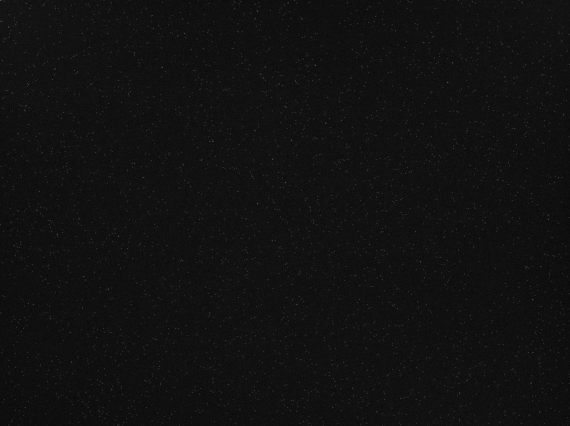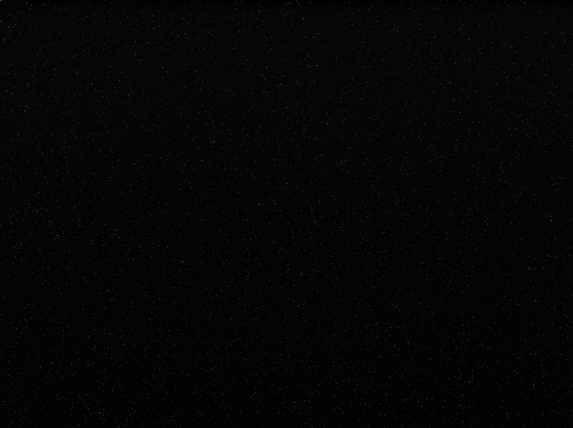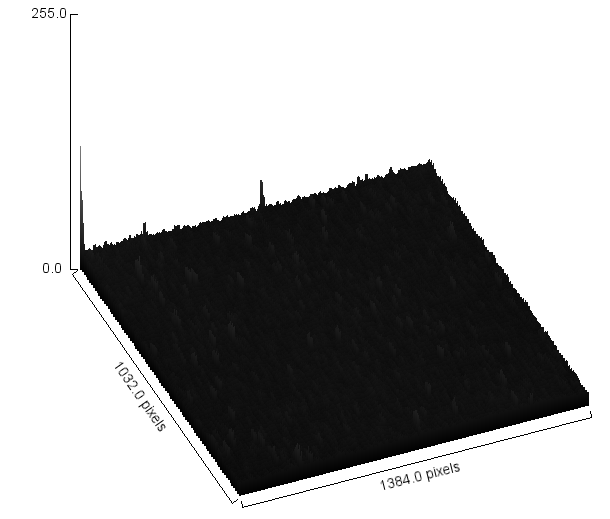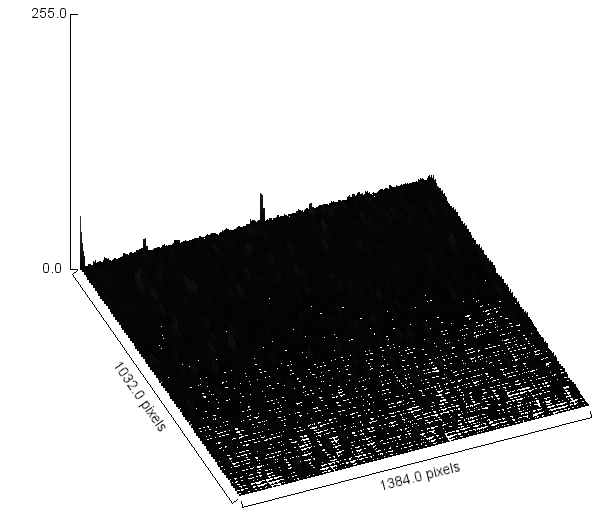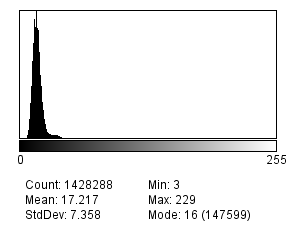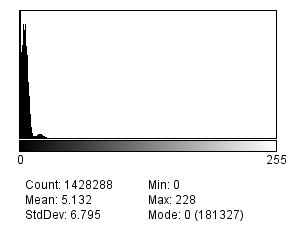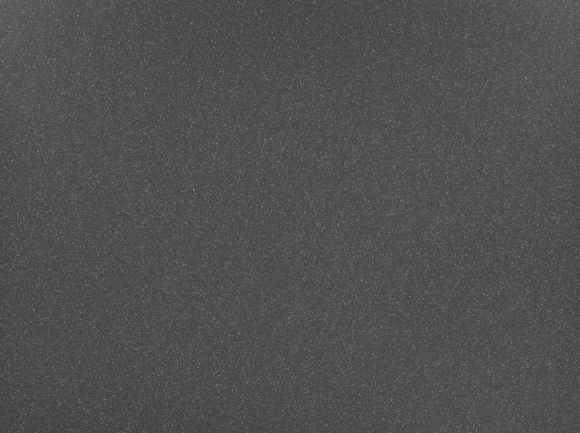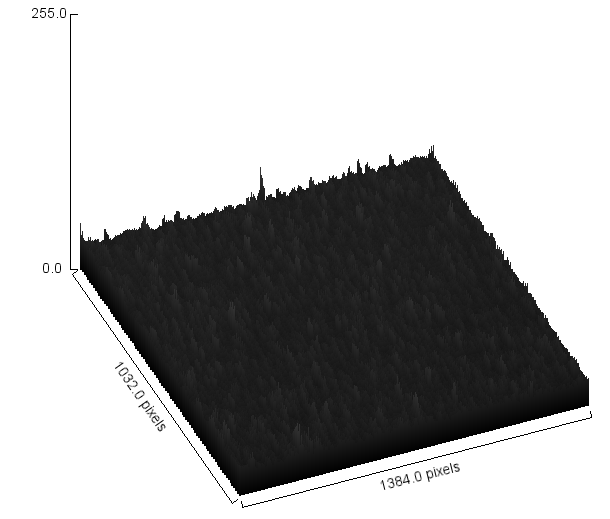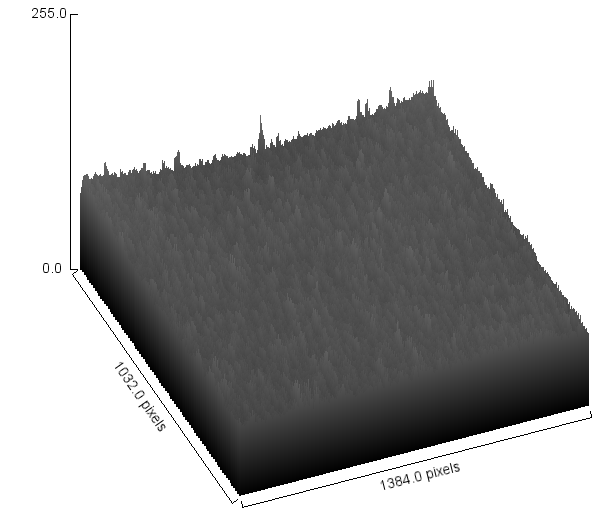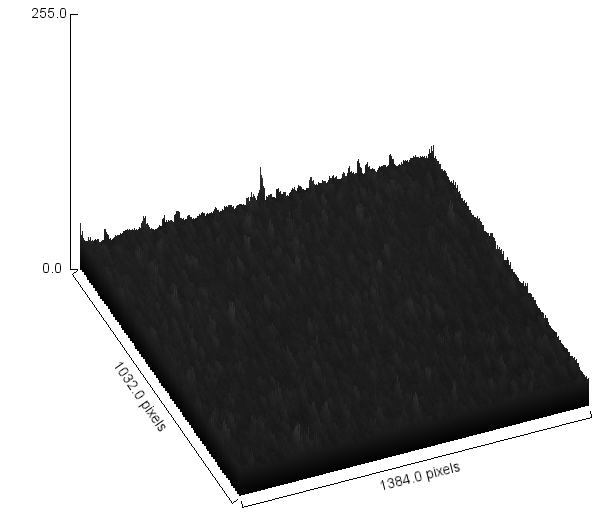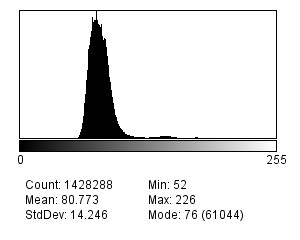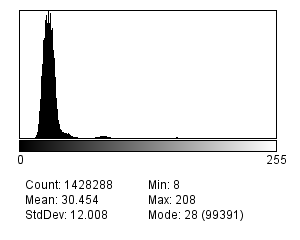Low Noise Imaging in the GS3-U3-15S5 Camera
Enabling Low Noise Imaging
Teledyne FLIR GS3-U3-15S5 cameras provide a special imaging mode optimized for low noise performance and long exposure time. In this mode, the CCD pixel gain amplifier is disabled, and the vertical pixel clock shift register is slowed. These features result in reduced temporal dark noise and dark current. Longer extended shutter times—up to 1.5 hours—are also supported. To enable this mode, configure the camera to video mode 7 via FlyCapture2, Spinnaker, or third party USB3 Vision software.
 |
To achieve long exposure time, frame rate control must be disabled. |
Imaging Performance Comparison
The results below have been generated to highlight the GS3-U3-15S5M imaging performance using video mode 0 and video mode 7. While using video mode 0, with a pixel clock of 49 MHz, the GS3-U3-15S5M model is capable of 45 FPS with 8.31 e- of temporal dark noise (read noise). While using video mode 7, with a pixel clock of 12 MHz, the GS3-U3-15S5M model is limited to 7 FPS but shows a temporal dark noise reduction to 7.02 e-.
For a complete reference of Grasshopper3 imaging performance results, please see the Imaging Performance Specification.
Measured Model Specification
| Model | GS3-U3-15S5M-C |
| Sensor | Sony ICX825 CCD |
| Resolution | 1384 x 1032 |
| Pixel Size (µm) | 6.45 |
| Firmware | 2.10.3.0 |
GS2-U2-15S5M-C EMVA1288 Imaging Performance Results
| Video Mode | Mode 0 | Mode 7 |
| Maximum Frame Rate (FPS) | 45 | 7 |
| Pixel Clock (MHz) | 49 | 12 |
| ADC (Bits) | 14 | 14 |
| Quantum Efficiency (% at 525 nm) | 73 | 69 |
| Temporal Dark Noise (e-) | 8.31 | 7.02 |
| Signal to Noise Ratio (dB) | 43.59 | 43.55 |
| Signal to Noise Ratio (Bits) | 7.24 | 7.23 |
| Absolute Sensitivity Threshold (γ) | 12.15 | 9.88 |
| Saturation Capacity (e-) | 22856 | 22621 |
| Dynamic Range (dB) | 68.28 | 69.56 |
| Dynamic Range (Bits) | 11.34 | 11.55 |
| Gain (e-/ADU) | 0.37 | 0.36 |
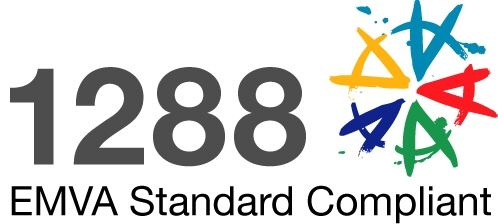 |
Measurements are taken based on guidelines in the EMVA 1288 standard; the full definition can be found at EMVA.org. Camera settings are at maximum exposure time and bit depth unless otherwise noted. The pixel format is Raw16 for color cameras. The pixel format is Mono16 for mono cameras. Results are captured at room temperature (20°C). |
Imaging Comparison
The following images and pixel surface plot diagrams were taken in total darkness (in a darkened environment with the lens cap on). The pixel format was Mono8. Maximum resolution (1384 x 1036) and gain (24 dB) were used. The use of maximum gain demonstrates the effect of disabling the pixel gain amplifier in Mode 7. To achieve the long exposure times, mode 0 used bulb shutter trigger mode. Mode 7 was free running.
|
Mode 0 Image - 20 Seconds Exposure |
Mode 7 Image - 20 Seconds Exposure |
|
Mode 0 Pixel Surface Plot - 20 Seconds Exposure |
Mode 7 Pixel Surface Plot - 20 Seconds Exposure |
|
Mode 0 Histogram - 20 Seconds Exposure |
Mode 7 Histogram - 20 Seconds Exposure |
|
Mode 0 Image - 100 Seconds Exposure |
Mode 7 Image - 100 Seconds Exposure |
|
Mode 0 Pixel Surface Plot - 100 Seconds Exposure |
Mode 7 Pixel Surface Plot - 100 Seconds Exposure |
|
Mode 0 Histogram - 100 Seconds Exposure |
Mode 7 Histogram - 100 Seconds Exposure |
